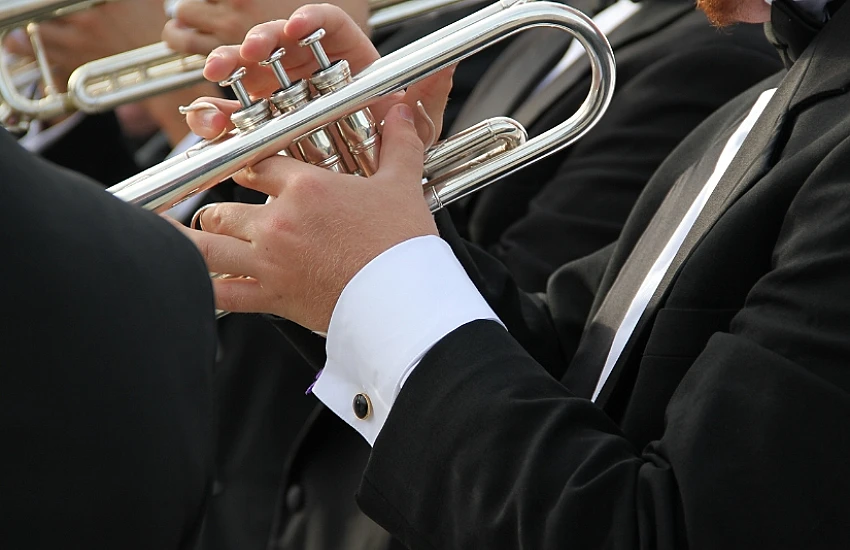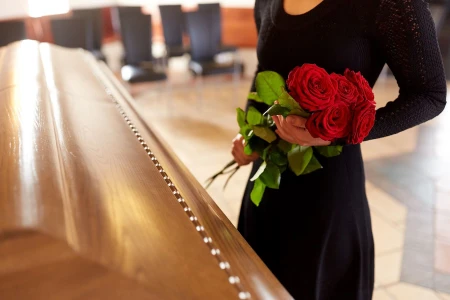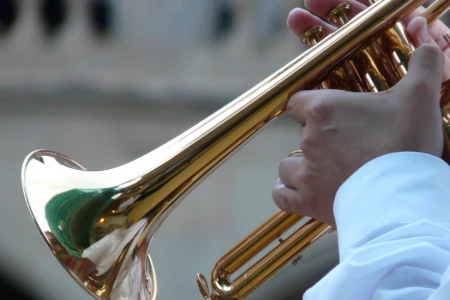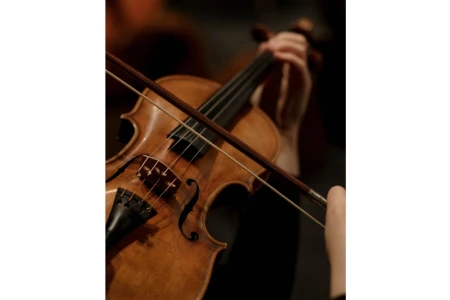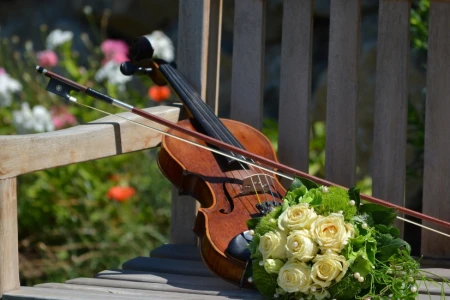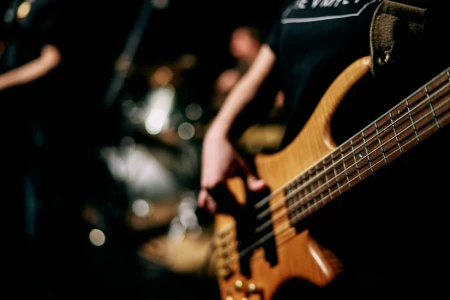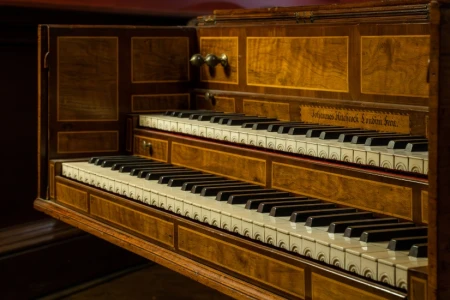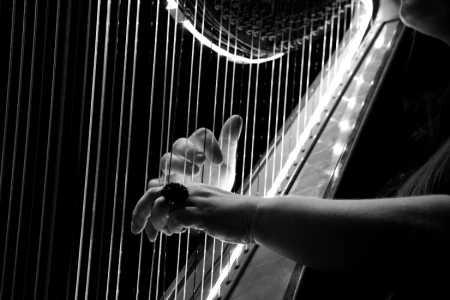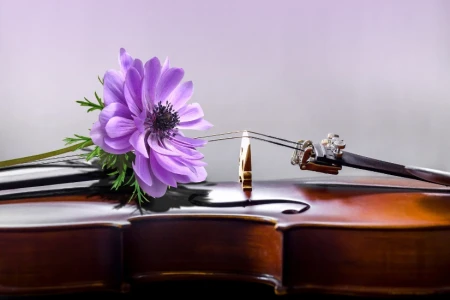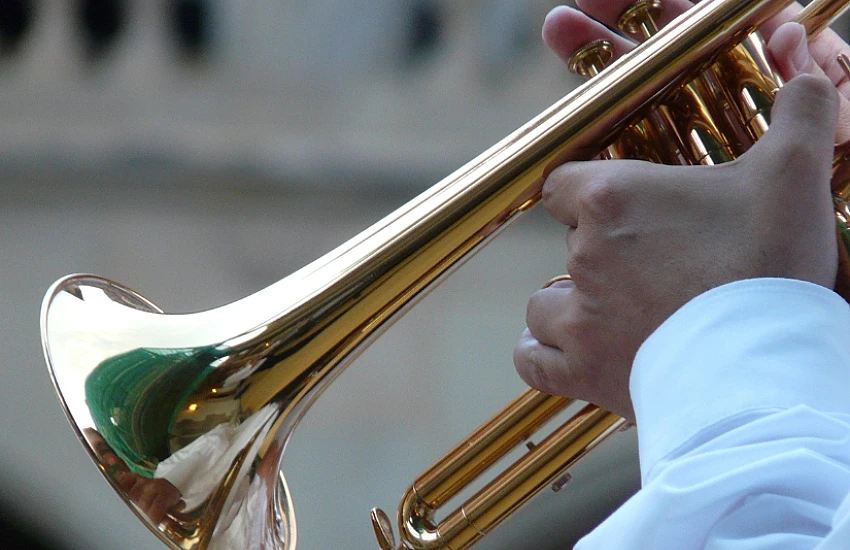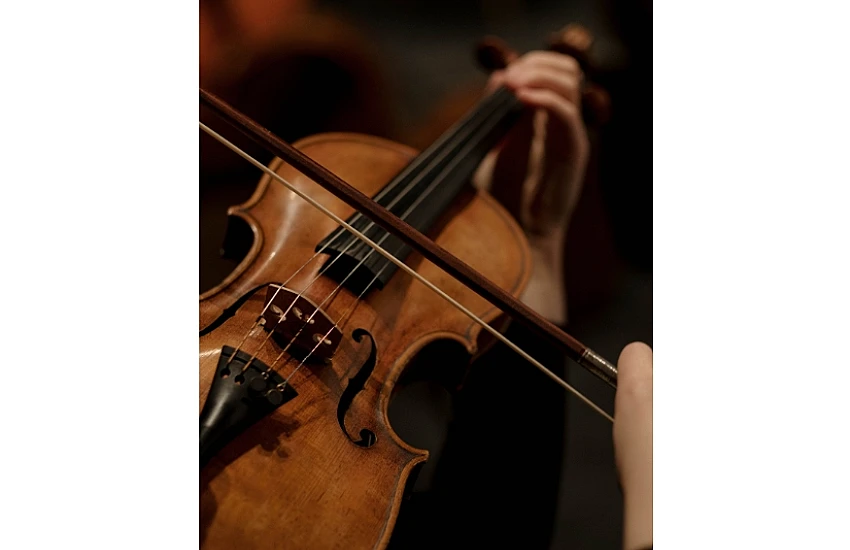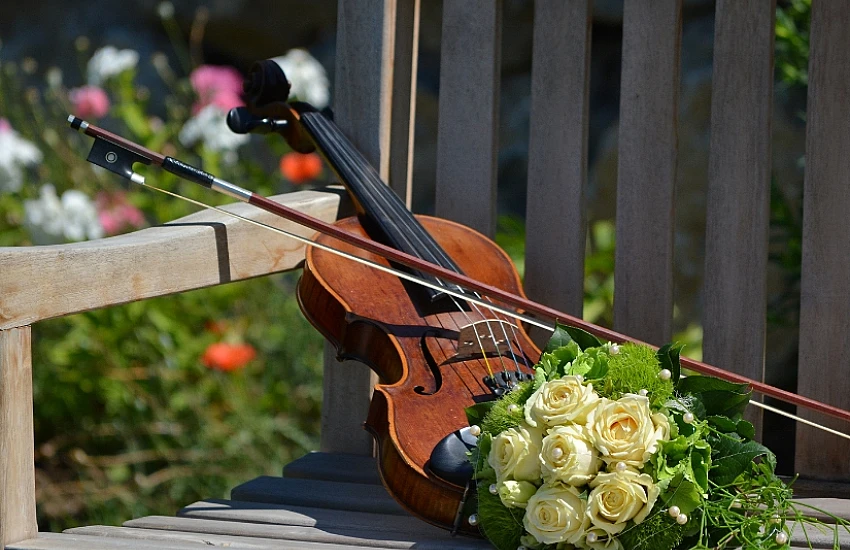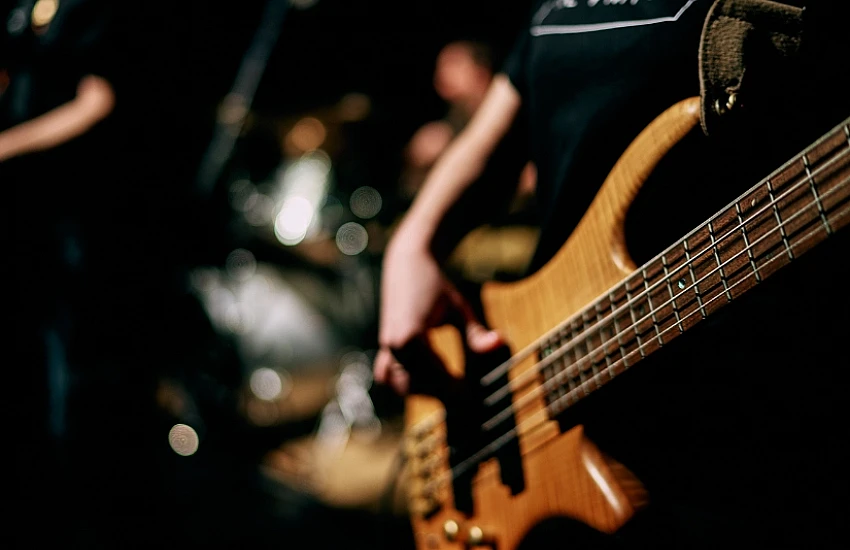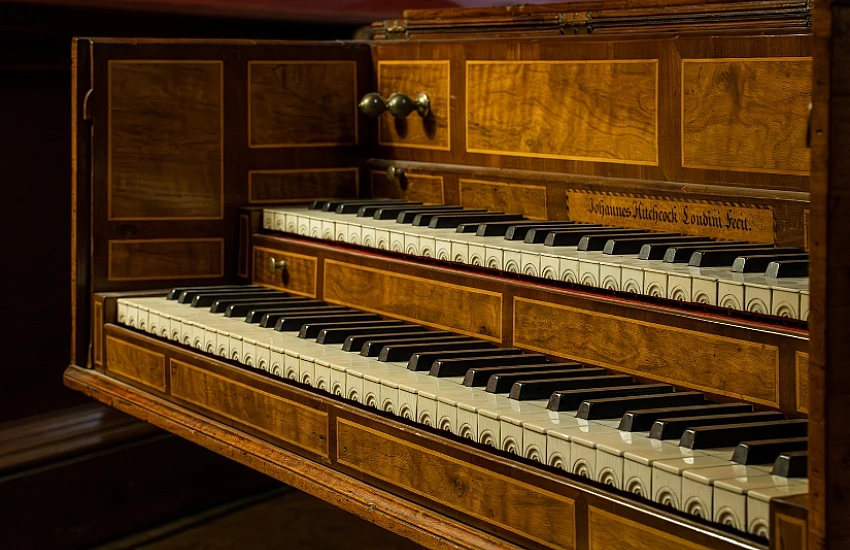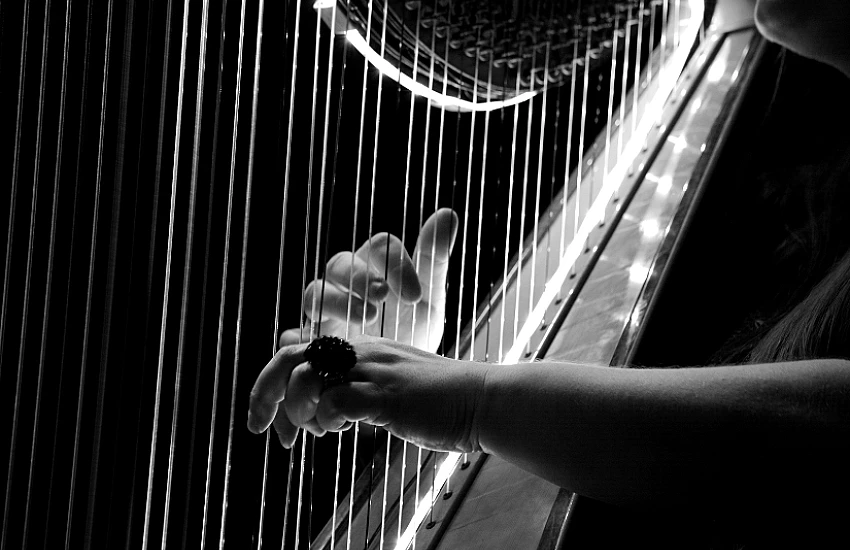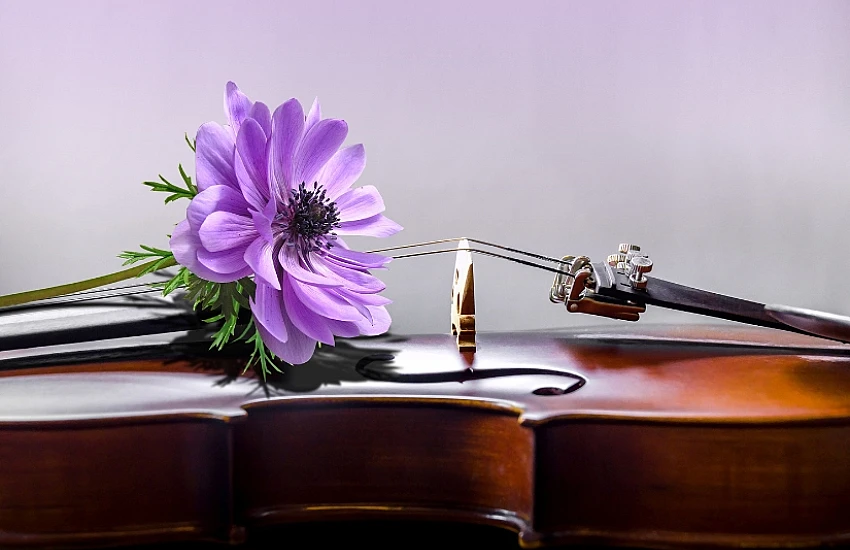Table of Contents
- Why is the right music choice important?
- The Most Popular Funeral Songs – Classical and Contemporary
- Music at Funerals in Different Cultures and Religions
- The Symbolism of Funeral Music – What Do Different Songs Say?
- The Role of Music in Grieving and Saying Goodbye to Loved Ones
- Live Music at Funerals – Why Should You Consider It?
- Instruments at Funerals – Classical Choices and Unconventional Solutions
- 10 Instrumental Pieces Perfect for a Funeral Ceremony
- Can You Play the Deceased's Favorite Song at the Funeral? What Should You Know?
- Music and Emotions – How to Properly Choose the Repertoire for the Final Farewell?
- The History of Funeral Music – From Gregorian Chants to Contemporary Ballads
- How Technology is Changing Funeral Music – From Vinyl Records to Spotify Playlists
- Frequently Asked Questions about Choosing Music for a Funeral Ceremony
- The Story of Kasia – A Funeral Full of Memories and the Deceased's Favorite Music
- Conclusion
Music is an integral part of every funeral ceremony. It accompanies us in moments of reflection, allowing us to express emotions that words often cannot convey. Choosing the right music for a funeral is not only about tradition but also a way to honor the memory of the deceased in a way that reflects their personality and life values.
Why is the right music choice important?
Funeral music helps create the right atmosphere, evoking reflection and memories. It is an element that connects mourners, enabling shared contemplation and saying goodbye to a loved one.
It emphasizes the character of the ceremony – from solemn to intimate.
It helps express emotions – sadness, hope, memories.
It provides space for personal reflection.
Music brings harmony, gives structure to the ceremony, and helps everyone feel a sense of unity in difficult moments.

The Most Popular Funeral Songs – Classical and Contemporary
- Classical compositions
Classical pieces are often chosen for funeral ceremonies because of their universal beauty and symbolism. Here are some suggestions:
"Ave Maria" – Franz Schubert or Johann Sebastian Bach/Charles Gounod
"Lacrimosa" – Wolfgang Amadeus Mozart
"Adagio in G Minor" – Tomaso Albinoni
These compositions stand out for their gravity and emotional message, making them perfect for a funeral atmosphere.
- Modern Songs
Contemporary music has also gained recognition in funeral ceremonies. Popular choices include:
"Time to Say Goodbye" – Andrea Bocelli and Sarah Brightman
"My Way" – Frank Sinatra
"Angels" – Robbie Williams
Modern ballads can touch the hearts of listeners, blending sentimental memories of the deceased with the unique style of the ceremony.
Music at Funerals in Different Cultures and Religions
Musical traditions in Christian, Jewish, and Islamic rites
Christianity: Gregorian chants, religious hymns, such as "Barka" or "Eternal Rest."
Judaism: Cantorial melodies, such as "El Male Rachamim."
Islam: Quran recitations, such as Sura Al-Fatiha.
In each of these traditions, music plays a unique role, emphasizing the spiritual aspect of the ceremony.
Regional differences
Folk music, such as bagpipes in Scotland or flamenco in southern Spain, has its place in local funeral traditions. It emphasizes the connection with the culture and tradition of the deceased, giving the ceremony a personal dimension.

The Symbolism of Funeral Music – What Do Different Songs Say?
Analyzing lyrics and melodies
Funeral music often carries a deep message:
"Ave Maria" – symbol of faith and solace.
"Taps" – military tribute to the deceased.
Each piece has its symbolism, reflecting emotions such as sadness, peace, or hope.
Examples of expressing emotions
String sounds or calm piano melodies convey the mood of reflection and contemplation, creating a unique atmosphere that helps in grieving.

The Role of Music in Grieving and Saying Goodbye to Loved Ones
Music as support in the grieving process
Melodies can soothe pain, help in accepting loss, and open space for memories. This is especially important in difficult moments when words are not enough.
Therapeutic significance
Music is sometimes used in grief therapy as a means to help cope with difficult emotions. Sounds can have a calming effect, helping restore emotional balance.

Live Music at Funerals – Why Should You Consider It?
Advantages of a live performance:
Greater emotional impact.
A unique moment.
Ability to customize the repertoire to personal needs.
How to find professional musicians?
Seek recommendations from the funeral home or local artist ads. You can also reach out to music schools or orchestras, who may recommend experienced performers.
Instruments at Funerals – Classical Choices and Unconventional Solutions
Popular instruments
Organs, violins, trumpets – classic choices ideal for churches and outdoor ceremonies.
Unconventional options
Harp, acoustic guitar – these instruments give the ceremony a more personal touch. Their sound creates a unique atmosphere.

10 Instrumental Pieces Perfect for a Funeral Ceremony
Classical and Contemporary Suggestions:
"Canon in D" – Johann Pachelbel
"Clair de Lune" – Claude Debussy
"Nocturne" – Fryderyk Chopin
"The Swan" – Camille Saint-Saëns
"Gymnopédie No. 1" – Erik Satie
These instrumental pieces impress with their simplicity and beauty, making them an excellent choice for any ceremony.

Can You Play the Deceased's Favorite Song at the Funeral? What Should You Know?
How to organize playing an unusual song?
Contact the funeral home to determine technical possibilities. It’s also important to ensure high-quality sound equipment to create the right effect.
Legal formalities and copyright
Make sure you have a legitimate source of music and notify the appropriate institution about the performance. This is particularly important for works under copyright.
Music and Emotions – How to Properly Choose the Repertoire for the Final Farewell?
Choosing music to fit the atmosphere of the ceremony
Consider what best expresses the feelings of the family and the character of the deceased. Some pieces may be particularly meaningful to the deceased or their family.
Tips
Consult the choice with family and close ones, taking into account the deceased’s wishes. It’s also worth considering a variety of music genres and styles.
The History of Funeral Music – From Gregorian Chants to Contemporary Ballads
The evolution of funeral music
From religious hymns to modern ballads, funeral music reflects cultural and historical changes. Gregorian chants were some of the first forms of funeral music, while today, pop or rock songs are also popular.
How Technology is Changing Funeral Music – From Vinyl Records to Spotify Playlists
Modern ways of playing music
Digital players, streaming apps, and professional sound systems.
Practical tips
Prepare the playlist in advance, ensuring that the equipment is compatible. Have backup copies of the songs to avoid technical issues.
Frequently Asked Questions about Choosing Music for a Funeral Ceremony
Why is music an important element of the funeral ceremony?
Music helps express emotions, honors the deceased, and creates an atmosphere of remembrance. It is a universal language that connects funeral participants, supporting them in grieving.
What are the most popular songs for funeral?
The most commonly chosen pieces are classical compositions such as "Ave Maria" by Schubert, "Lacrimosa" by Mozart, as well as modern ballads like "Time to Say Goodbye" or "Wind Beneath My Wings."
Does the music at a funeral have to be religious?
No, the choice depends on the preferences of the family and the character of the deceased. Both religious and secular songs can be chosen if they better reflect the personality or values of the deceased.
Can you arrange live music at a funeral?
Yes, many people choose to have live performances by professional musicians, such as violinists, organists, or vocalists. Live music adds a unique and personal touch to the ceremony.
How do you match the music to religious and cultural traditions?
It’s worth consulting with the clergy or funeral organizer to ensure the music aligns with religious requirements and cultural traditions. For example, in Christian rites, liturgical hymns are popular, while in Judaism, psalms are common.
What instruments are most commonly used during funeral ceremonies?
The most popular instruments are organs, violins, and trumpets. However, harps, acoustic guitars, or flutes are also increasingly common, giving the ceremony a unique character.
Can you play the deceased’s favorite song during the ceremony?
Yes, this is possible, but it’s important to ensure the piece fits the atmosphere of the funeral and confirm it with the ceremony venue, such as the church.
How can technology assist with playing music at a funeral?
Modern solutions such as Spotify playlists, MP3 players, or professional sound systems allow for precise playback of selected songs in high quality.
Are there copyright laws that could affect music choice?
Yes, if music is played in public spaces, a license for public performance may be required. It’s important to check this with the funeral organizer.
How do you choose music that reflects the character of the deceased?
It’s best to rely on personal memories and the deceased's tastes. You can choose songs that were important to them or connected to their passions and accomplishments.
The Story of Kasia – A Funeral Full of Memories and the Deceased's Favorite Music
Kasia recalls the day as one full of emotions and memories that will forever remain in her heart. The funeral of her friend Piotr took place in a beautiful, intimate atmosphere. Piotr was an extraordinary person – he loved life, travel, and music. His passion for jazz was well known to all who had the pleasure of meeting him.
At the beginning of the ceremony, instead of the traditional organ music, the sounds of "What a Wonderful World" by Louis Armstrong filled the air. "That was his favorite song," says Kasia, wiping away a tear. "Piotr always said that this song reminded him how beautiful the world is, even in the darkest moments."
Music was present throughout the ceremony. When flowers were placed on the coffin, the gentle sounds of a saxophone filled the chapel. It was a live performance by a local musician whom Piotr knew and admired. "At that moment, I felt that Piotr was with us," recalls Kasia.
The most touching moment came at the end when the sounds of "Autumn Leaves" by Nat King Cole flowed from the speakers. "That was a song I always associated with Piotr. He listened to it when we had coffee at his favorite café. At that moment, each of us saw him before our eyes – smiling, happy, full of life."
Kasia admits that although the ceremony was emotionally difficult, the music made it beautiful and meaningful. "It wasn’t just a mourning ceremony; it was also a celebration of Piotr’s life. Music allowed us to remember him as he was – joyful, full of passion, and always with a good word for others."
The music chosen for the ceremony gave a sense of peace and reflection, making it a beautiful final farewell to someone who loved life so much.
Conclusion
Choosing funeral music is a difficult yet essential task. Music helps convey emotions, create the right atmosphere, and honor the memory of the deceased. Whether it’s classical compositions, contemporary songs, or live performances, the right selection can transform the ceremony into a truly unique experience.

